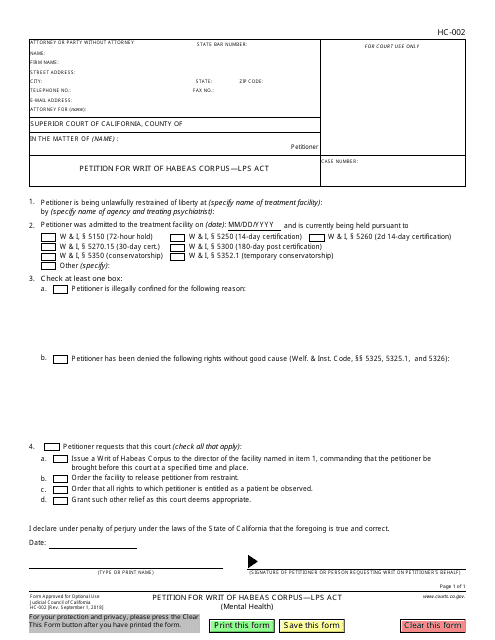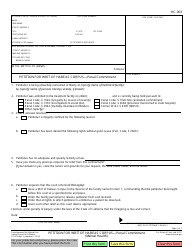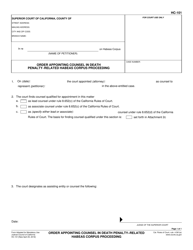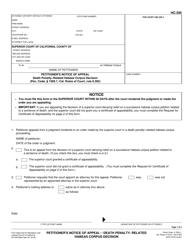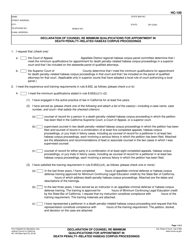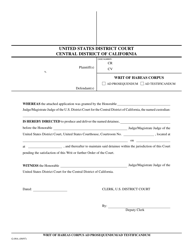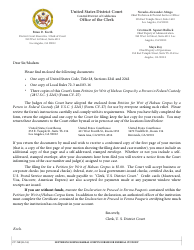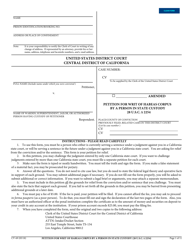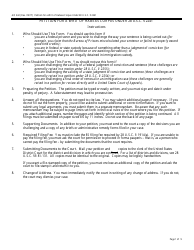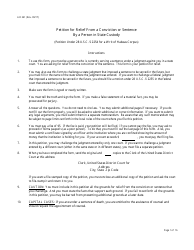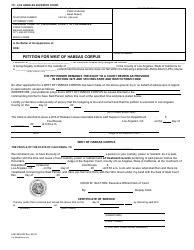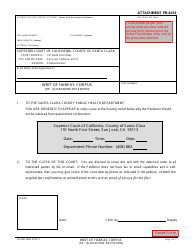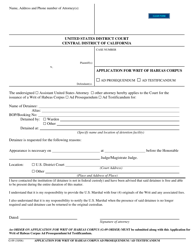Form HC-002 Petition for Writ of Habeas Corpus - Lps Act - California
What Is Form HC-002?
This is a legal form that was released by the California Superior Court - a government authority operating within California. As of today, no separate filing guidelines for the form are provided by the issuing department.
FAQ
Q: What is Form HC-002?
A: Form HC-002 is a petition for a Writ of Habeas Corpus under the LPS Act in California.
Q: What is a Writ of Habeas Corpus?
A: A Writ of Habeas Corpus is a legal petition that allows individuals to challenge their detention or confinement.
Q: What is the LPS Act in California?
A: The LPS Act, or Lanterman-Petris-Short Act, is a California law that provides procedures for the involuntary detention and treatment of individuals with mental illness.
Q: Who can file Form HC-002?
A: Any person who is involuntarily detained or confined under the LPS Act in California can file Form HC-002.
Q: What information is required in Form HC-002?
A: Form HC-002 requires information about the petitioner, details of the detention or confinement, and the grounds for challenging it.
Q: Do I need an attorney to file Form HC-002?
A: You can file Form HC-002 without an attorney, but it is recommended to seek legal advice to ensure that your rights are protected.
Q: What happens after filing Form HC-002?
A: After filing Form HC-002, there will be a court hearing where the judge will review the petition and make a decision.
Q: What are the possible outcomes of filing Form HC-002?
A: The judge may grant a Writ of Habeas Corpus, order the release of the petitioner, or determine that the detention or confinement is lawful.
Q: Can I appeal the decision if my petition is denied?
A: Yes, you can appeal the decision if your petition for a Writ of Habeas Corpus is denied. It is important to consult with an attorney for guidance on the appeals process.
Form Details:
- Released on September 1, 2018;
- The latest edition provided by the California Superior Court;
- Easy to use and ready to print;
- Quick to customize;
- Compatible with most PDF-viewing applications;
- Fill out the form in our online filing application.
Download a fillable version of Form HC-002 by clicking the link below or browse more documents and templates provided by the California Superior Court.
